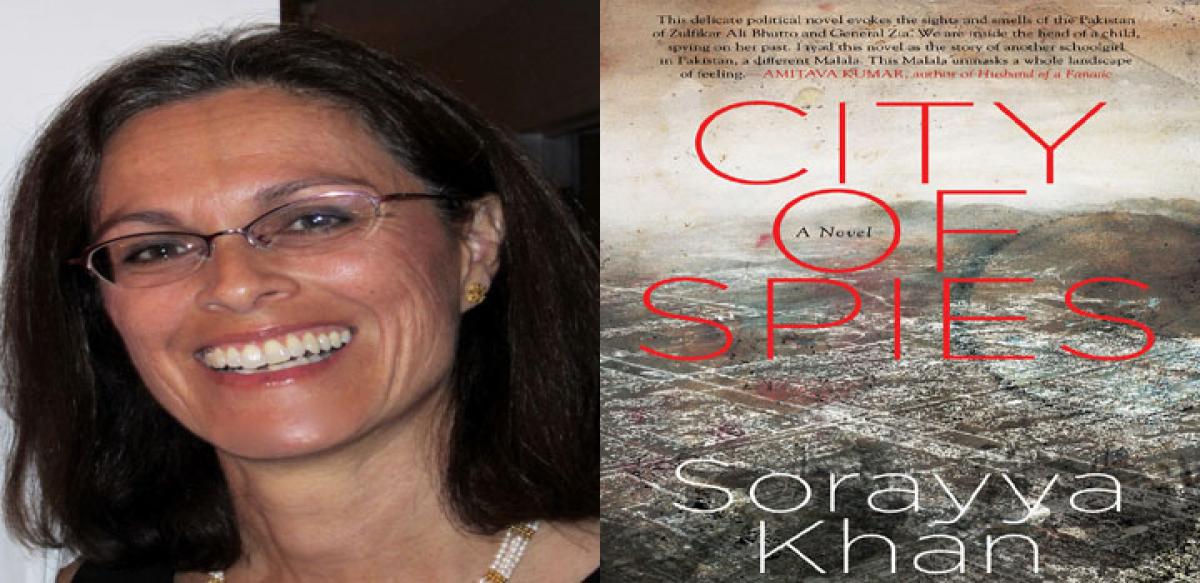Live
- ‘Get Set, Grow Summit 2024’ Focuses on Digital Detox for Families
- Stokes motivates his team to put in extra effort, says England pacer Potts
- From overcoming setbacks to leading India in U19 Women’s Asia Cup, Niki Prasad's amazing journey
- Driving Enterprise Security: Inside Venkata Reddy Thummala’s Leadership Journey
- Constitution debate: PM Modi hails 'Nari Shakti'; makes strong pitch for 'United Bharat’
- Abhijeet Bhardwaj: Revolutionizing Enterprise Analytics with Innovation and Expertise
- Bihar: Inquiry initiated against principal who went to buy veggies during school hours
- Press Sri Lankan Prez for release of Indian fishermen: TN Cong MP to EAM Jaishankar
- TN: DMK postpones executive meet due to heavy rains & Parliament session
- Porous silicon oxide electrodes can fix durability issues in batteries: Researchers
Just In

In 1979, the Shah of Iran left and the country became an Islamic republic, deposed Pakistani Prime Minister Zulfiqar Ali Bhutto was hanged, the US ambassador to Afghanistan kidnapped and killed and lethal power games were underway in now-Communist-ruled Kabul.
The story is set in Islamabad, 1977, told in the voice of 11-year-old Aliya Shah. The book is a near-autobiography, dealing with genres like coming-of-age and politics

In 1979, the Shah of Iran left and the country became an Islamic republic, deposed Pakistani Prime Minister Zulfiqar Ali Bhutto was hanged, the US ambassador to Afghanistan kidnapped and killed and lethal power games were underway in now-Communist-ruled Kabul. The American embassy in Tehran was overrun and the entire staff made captive, the Grand Mosque in Makkah attacked and seized - and attacks on US establishments in the region followed after rumours of their involvement.
It was a year of changes, both internal and external, which would impact Pakistan, not only then, but down to the present as well, especially the US. We get a chance to see them through the eyes and mind of an adolescent girl, still to come to terms with her different heritage, making sense of an uncertain world and understanding concepts like guilt, atonement, loyalty, life and death.
Sorayya Khan begins her third novel in Islamabad in July 1977, as 11-year-old Aliya Shah, the third and youngest child of a senior Pakistani bureaucrat and a Dutch mother, who comes to know army chief Gen. Zia-ul-Haq has overthrown Prime Minister Bhutto.
The effects of the regime change loom over them with her father, appointed by Bhutto who had persuaded him to leave his UN job in Europe and return home to help re-build the country. He fears for his job (with an intelligence agent turning up regularly to quiz the servants) and increasing Islamisation. Aliya, whose elder siblings are studying abroad observes, "God was everywhere, but so was the General." But her life and education goes on quite normally at the American School.
Acquaintance with the uncompromising realities of life and death take place next year when the family retainer's young son, who had become withdrawn after Bhutto was arrested for murder, and has just returned to some normality, is killed in a hit-and-run accident by a diplomat's car. It is however in the significant year 1979, when things take a dramatic turn in the wider world. They also do so in the life of Aliya, who comes to know the car was being driven by her friend's mother - and more worryingly, finds the family retainer hanging around the Americans' house.
An Iranian classmate and his family fled to the US for refuge and are among the captives and the Makkah attack leads to the US embassy in Islamabad being stormed and burnt to the ground, while her school is also attacked. Most Americans are evacuated the same night. Aliya, noticing her servant leaving the house, follows him to the street outside her friend's house where a confrontation of sorts takes place. Spending the Christmas holiday in her grandfather's house in Lahore, she sees news of the Soviet forces landing in Kabul.
It is years later, she finds out what had really happened on that day in November and finally comes to terms with the past.
The author, whose previous books also incisively and empathically deal with Pakistan at other crucial times of its life (1971 in "Noor") spins the same magic in this near-autobiography, which straddles both the genres of coming-of-age and politics, while finding some uncanny resemblances with current day events.
But its biggest contribution is reminding us that it was 1979, not 2001 which began the US' fatal entanglement with the Islamic world - and Pakistan, due to some acts of omission and commission, soon found itself bearing the brunt.
This happened with unfortunate reverberations not only for it but the region and the wider world can be glimpsed in this riveting account of those two-and-half turbulent years.

© 2024 Hyderabad Media House Limited/The Hans India. All rights reserved. Powered by hocalwire.com







